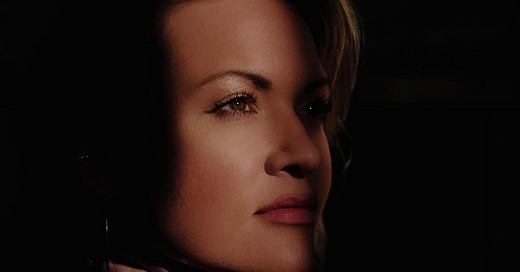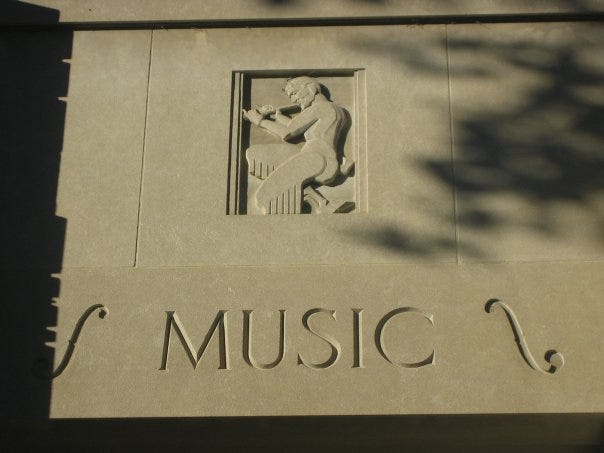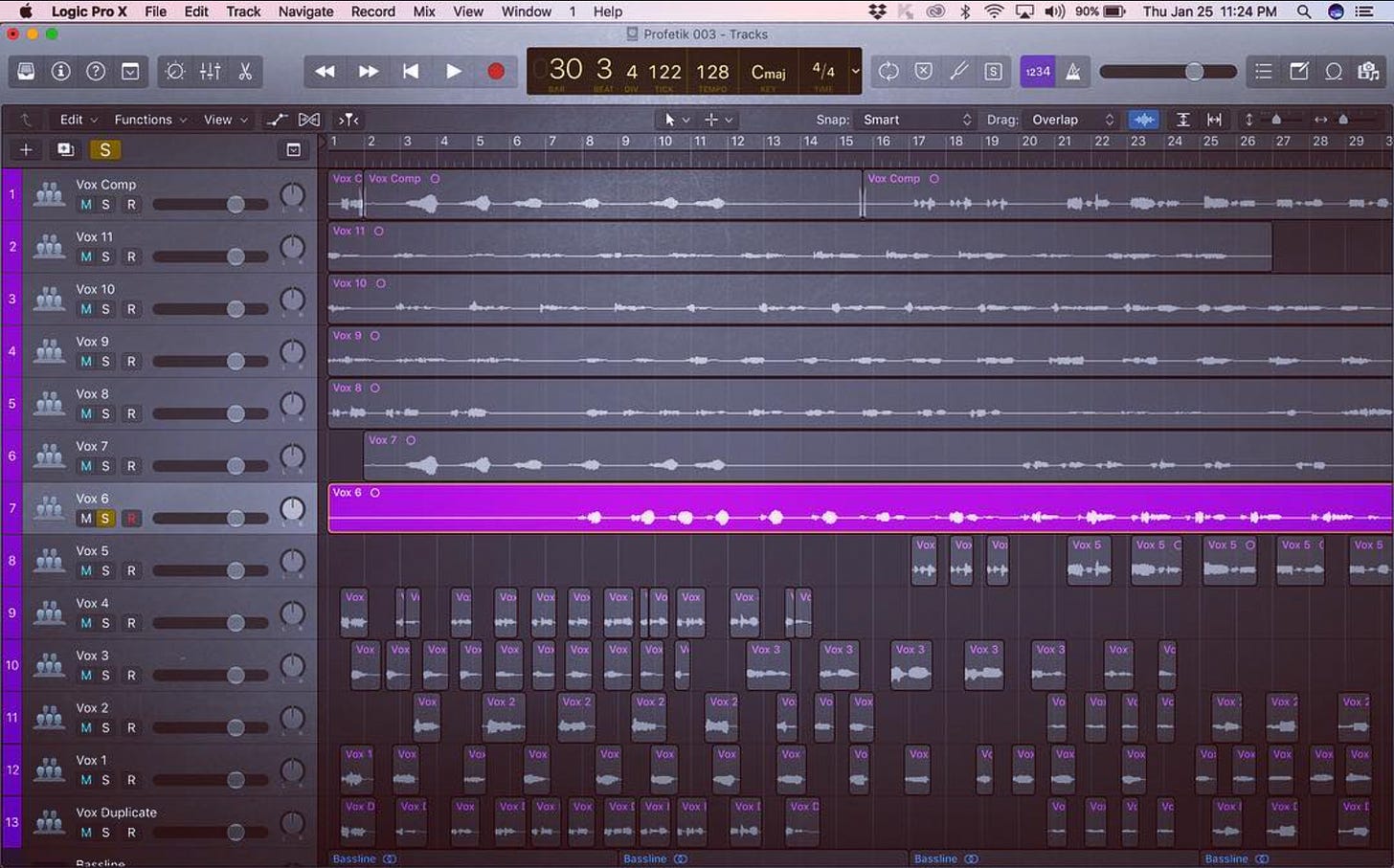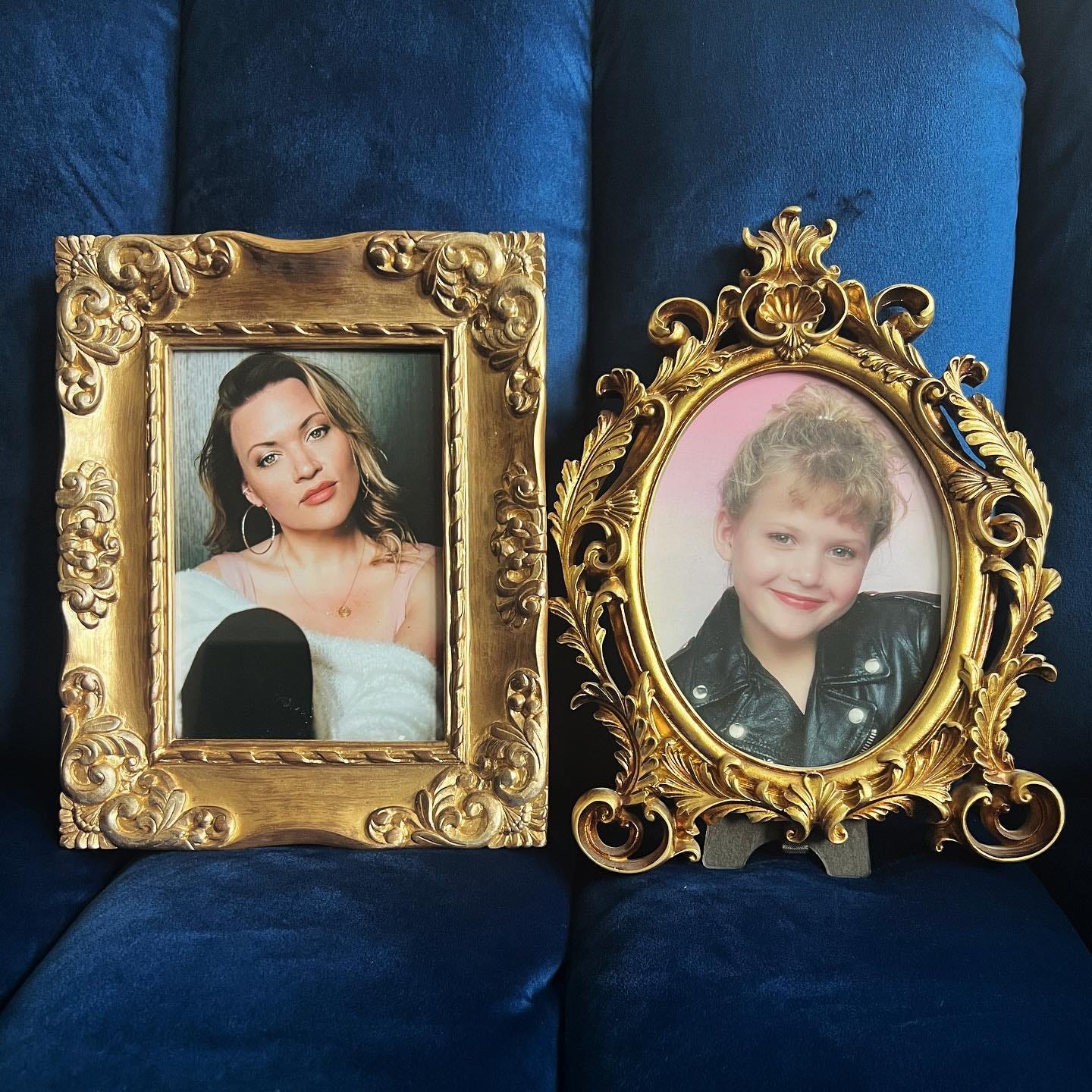Mainstream outsides, rogue insides.
When a friend first described me this way, the phrase struck a chord so deep I couldn't shake it.
In those four words, she captured something I had felt but couldn't articulate about my journey as a musician—and, really, as a creative human being navigating this increasingly confusing world.
I've never had tattoos or much in the way of piercings. I don't usually wear eccentric clothes or quirky hats. I don't "look the part" of what many expect from a musician (a memorable one, anyway). And for years, I felt the weight of those expectations—the subtle (and sometimes not-so-subtle) questioning glances when I would mention my profession.
The countless times I felt invisible within circles of musicians, artists, and ‘alternative’ people. The unspoken "Really? You?"
As a saxophonist who eventually found her way as a vocalist in electronic and dance music, I haven’t really matched people's preconceptions of either role. Plus, being a versatile, curious person led me to try on many different hats, metaphorically speaking.
I was never content to stay in just one lane.
But no matter how I've presented myself externally, within me lives a spirit that has always charted its own course, often in directions that surprised even me. That internal compass has proven far more reliable than any external validation.
The Authenticity Paradox
We live in an age where the pressure and temptation to craft a perfect image has never been greater, yet there seems to be a growing hunger for authenticity at the same time.
What’s the deal with that?
There’s no denying it: We are navigating new digital landscapes where reality itself feels increasingly malleable, with artificial intelligence, deep fakes, filters, and curated personas blurring the lines between genuine and manufactured.
So, it makes sense that the courage to simply be yourself could actually be revolutionary.
Authenticity isn't about blindly rebelling against expectations, though. It's really about having the courage to listen to your own voice when everyone else is telling you who you should be. It’s the resolute commitment to being you, regardless of external factors. And that is something that requires continuous effort in a world that profits off of your insecurities.
Finding My Voice
My journey began conventionally enough with studying at Indiana University's Jacobs School of Music. The education was traditional, rigorous, and invaluable, giving me a foundation that supports all of my creative work to this day.
But while I was gaining technical proficiency and theoretical knowledge, something inside me was always a little bit restless.
Deep down, there was a singer and storyteller that I hadn't yet acknowledged. I had no background in vocal performance, no childhood in choir, no experience as a front woman. I had never written a song—at least not one with lyrics.
But there was a quiet voice inside saying: I’m here. There’s more. Please listen.
For years, I pushed that voice aside. After all, I was a musician—part of the band, in the background, playing a supporting role most of the time. That was my identity, my training, my place in the musical world. Stepping away from it felt not just scary; it felt somehow inauthentic, as though I was trying to be something I simply wasn’t, or like I was abandoning what I “should” be.
The irony, of course, is that by clinging to that limited definition of myself, I was actually denying my authentic musical identity.
Low Stakes, High Growth
My breakthrough came in the unlikeliest of venues: cruise ships. From 2010 to 2014, I worked as a saxophonist on various cruise lines, playing in bands and entertaining guests.
It was there, in performing for crowds more interested in their cocktails than critical listening, that I found the perfect low-pressure environment to experiment.
The stakes couldn't have been lower. Most passengers were there to have a good time, often several drinks in, caring more about the energy of the performance than technical perfection. In this space, I could try out singing with the band—tentatively at first, and then with growing confidence.
I could test what it felt like to be a front woman, to connect directly with an audience rather than being in the background.
I’ll tell you this: Even for a seasoned performer, being center stage can be terrifying. I was scared, but I did it anyway—as much as I could, whenever I could. Admittedly, I stepped on some toes and ruffled some feathers along the way, managing to annoy a few people who were actually hired as professional singers (obviously I wasn’t).
I learned through all this that people don’t like boldness all that much unless it benefits them, but they do really like giving you their opinions—just like the Hungarian dancer on my crew who, after one set, told me bluntly (and very confidently), "Singing isn't for you. Stick to the saxophone."
Had I been seeking external validation, that comment might have sent me retreating back to the safety of what I knew. But by then, I had connected with something more important: the joy and fulfillment that came from developing the strength to express my complete musical self, regardless of how it looked from the outside.
I constantly pushed myself, experimenting and throwing myself into the fire, far outside my comfort zone. I crashed and burned a few times, felt constant anxiety, but continued.
This period also coincided with enough life experience (and yes, heartbreak) that songwriting suddenly began to flow naturally. Words and melodies that had been locked inside started finding their way out, like they'd been waiting all along for permission to exist.
It felt inevitable.
Some of my most precious memories are from late nights after the sets were finished. When the lounges emptied and the passengers retreated to their cabins, I would find myself at the backstage piano in the bow of the ship, with nobody around. In those quiet hours, with only the gentle rocking of the ship for company, I'd write piano melodies, motifs, and fragments of song ideas, soothing my loneliness.
I remember tinkering on the keys as the velvet stage curtains swayed to the sound of a creaking hull and crashing waves—my private creative ritual, complete with the most atmospheric accompaniment.
Later in my cabin, I'd listen to the recordings I'd taken, ideas swirling in my head as I drifted off to sleep.
A Very Unglamorous Path to Progress
Between these months-long cruise ship contracts, I found myself at karaoke bars, practicing songs I wanted to master. I sometimes felt embarrassed: Was I even a "real singer" if I was doing karaoke?
Whatever, I’d tell myself. Gotta improve somehow.
I was eventually offered a gig running karaoke shows at some bars in Minneapolis. Over many months, I’d try out songs, fail spectacularly at some, nail others, and return home in the early morning hours, when I’d work on my own songs to wind down before finally sleeping.
(This was not a particularly healthy routine.)
By the time my cruise ship chapter was over, I had made a pivotal decision: I would treat myself as a singer and songwriter, no matter what anybody said. It didn't matter if I wasn't as good as I wanted to be yet, or if I wasn't performing often enough to feel like a "legitimate professional."
I was a singer and a songwriter, and that was that.
This simple choice—to claim my identity regardless of external validation—became the foundation for everything that followed. It wasn't about waiting until I felt 'ready' or until others recognized me. It was about taking ownership of my authentic self first, and letting the external world catch up.
I simply persisted.
From Karaoke Nights to Global Recognition
After running karaoke shows for a while and searching everywhere for opportunities, I connected with a business owner in the U.K. who was looking for singers to create vocal samples. You know, the short vocal snippets you hear in dance music, or those memorable hooks that populate otherwise instrumental tracks.
It was the perfect entry point into the recording industry (specifically, dance music) and a great opportunity to build credibility while having fun in the process. So, I started releasing vocal sample packs.
This strategic move got my name circulating globally, enabling me to claim authority in a surprisingly short amount of time. People began using my vocals all over the world, including renowned artists like Armin van Buuren. My voice was appearing on popular radio shows like A State of Trance, Above & Beyond's Group Therapy, and at major dance music festivals like EDC, Ultra Music Festival, and Dreamstate.
Suddenly, I was a vocalist—professionally. Nobody could argue with that.
Over the next few years, I kept fine-tuning my craft through constant repetition, building vocal and writing skills like muscle. Despite mixed feedback—both criticism from strangers and touching messages about how my work inspired listeners—I found the reach and impact exhilarating.
Yet something was missing.
Despite this new level of what I perceived to be 'success', I wasn't releasing complete original songs. Even my collaborative work remained fragmented—short phrases, single verses, hooks—never a full song I could call my own.
A turning point came in 2022, when I decided to make a move and contact an artist I had listened to and admired for years: Satin Jackets. No stranger to rejection, I didn't expect to hear back. But to my surprise, he responded and expressed interest in working together on an original track.
Since then, I've written and released two songs (and their remixes) with him, which has opened doors to a whole new level of audience and artistic growth. To date, those songs have garnered over 3 million streams.
It makes me wonder what that Hungarian dancer is up to these days.
The Liberation of Incongruence
There's a peculiar freedom in embracing the incongruence between how others perceive you and who you know yourself to be. When you stop trying to align your outside with others' expectations, you create a lot of space for your authentic self to emerge.
"The fastest way to succeed is to look as if you're playing by somebody else's rules, while quietly playing by your own."
Michael Korda
This philosophy has unconsciously guided my approach. Not because I'm trying to deceive anyone, but because I've noticed how fixated people can be on whether you've followed the conventional path. So, there’s a certain delight in bypassing bureaucracy, creating solutions on your own terms, and stepping outside hierarchical boundaries.
At least, if you’re like me.
I didn’t get formal training for voice. I waited for no gatekeeper, or blessing, or approval. I simply assumed the role I wanted, no matter how much naysaying ensued. But it wasn’t easy, and I feel for other creative people who are searching to reinvent themselves, or find parts of themselves that have laid dormant.
Please remember this: Your creative identity isn't fixed. It's fluid, expansive, and entirely yours to reshape. The greatest limitation is often your willingness to reimagine yourself.
There's freedom that comes with being visually adaptable, while remaining creatively authentic. So, if you’re rather mainstream-looking like me, own it. Trying too hard to look ‘artistic’ ends up being its own kind of conformity, anyway.
Regardless of outsides, embracing my "rogue inside"—that part of me that refused to be confined by training or expectation—led me to music I never would have created otherwise. Songs that wouldn't exist. Performances that wouldn't have happened. Connections I wouldn't have made.
I’m not going to say that presentation doesn’t matter, but at the end of the day, your inner compass is going to guide you toward your best and most authentic expression.
The Era of Radical Authenticity
As we move deeper into an age where artificial and augmented realities become increasingly sophisticated, real human expression is more important than ever. In fact, the ability to recognize and value what's real, in ourselves and others, may be one of the most important skills we can develop.
I’m not suggesting that we reject technology or progress, but rather, maintain our humanity within it.
Buried in the algorithms and expectations are our complex, contradictory, and gloriously unpredictable beings.
So, whether your outsides are mainstream or not, take this as an invitation to go rogue—an invitation to question the masks we wear, to listen to the quiet voices inside that point us toward our truest expression, and to have the courage to follow them even when they lead us in unexpected directions.
Because in a world increasingly filled with perfect illusions, your authentic self—contradictions, incongruences, and all—is a precious gift.









What else can we do but pursue what aligns with us and shape ourselves into who we want to be? The act of consistently moving towards self and away from external identity reinforces it until we actually start believing it. There are so many naysayers and a society that pushes us back in line. The simple pursuit of self is quietly rebellious since it affirms where your locus of control derives from.